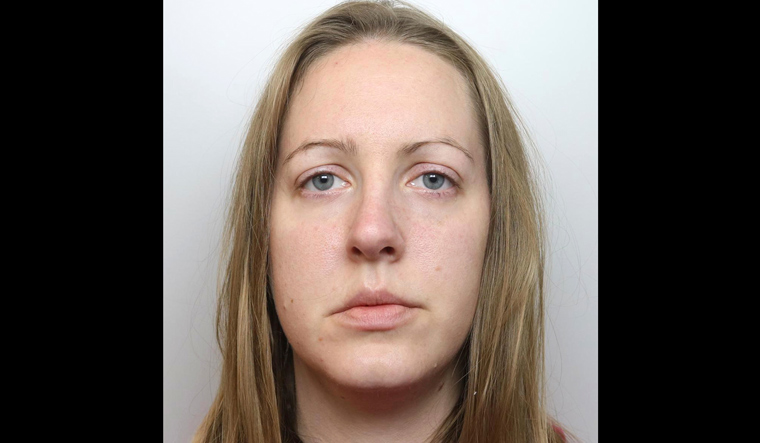Lucy Letby, 33, a British nurse was labelled UK’s most prolific child serial killer after she was convicted of murdering seven babies by Manchester Crown Court on Friday.
It was found that she deliberately injected babies with air, force fed them with others milk and poisoned two of the infants with insulin.
Letby born in January 1990 in Hereford, UK, is the daughter of John and Susan. She was the first in her family to go to a university for higher studies. She studied nursing for three years at University of Chester.
After her studies in 2011, she was working as a full-time nurse from January 2012. During her studies she completed work placements and majority of them were at Countess of Chester Hospital, where she was working full-time, in Cheshire. Majority of her work was in children's ward or neonatal unit.
“I loved to work with children,” Letby had said during the trials in court.
Letby lived in staff accommodation at Ash House before buying a house in Westbourne Road, Chester in April 2016.
She was accused of murdering seven babies and attempting to murder 10 others between June 2015 and June 2016. However, she denied all 22 charges against her. She had argued in court that she was always made to work with “sickest babies” in the neonatal unit.
Her defence argued that the death and collapses were the result of “serial failures in care” in the unit.
The trial started in October 2022 went on for 10 months.
She was arrested in 2018 over the charges of murdering the babies.
How the deaths led to Letby
The first five murders happened between June and October 2015. Deaths of babies went on at the hospital for another year and the final two happened in June 2016.
The neonatal unit's lead consultant Dr Stephen Brearey raised concerns to hospital authorities about Letby in October 2015. However, no action was taken.
Fingers were also pointed at the hospital for ignoring the warnings after series of infant deaths.
Two babies also died while Letby was working at Liverpool Women's Hospital as well.
Even before June 2015, around three babies died a year on the neonatal unit at the Countess of Chester Hospital. However, in June alone three babies died within the space of two weeks, which was noted by the consultants in the unit.
Staff analysis had revealed that Letby was in duty during the deaths. Again when deaths were reported in October, alarms were raised and she was yet again found to be on shift.
Dr Brearey had suspicion that Letby might be “harming” the babies. Unit manager Eirian Powell was informed of the event but did not seem to share his concerns, reported BBC.
It was noted that the babies were suffering from non-fatal collapses meaning they needed emergency resuscitation or help with breathing, with no apparent clinical explanation.
In February 2016, Dr Ravi Jayaram noticed that Letby was standing and watching when a baby seemed to have stopped breathing.
In May, two more babies died.
In June 2016, another baby and three premature triplets died unexpectedly.
After the triplets incident, duty executive Karen Rees was told to cover Letby's shift and she was asked to be taken off duty. But she refused, reported BBC.
Finally, Letby was assigned to the risk and patient safety office, where it was known that she had access to sensitive documents from the neonatal unit.
The internal investigation by the consultants also noticed that the deaths had stopped since she was removed from the unit.
However, she was not suspended and there was no conclusive evidence as well.
Rather than involving Police, Royal College of Paediatrics and Child Health was brought in to review the level of service on the neonatal unit.
In September 2016, an expert team visited the hospital and met with consultants.
"A thorough external independent review of each unexpected neonatal death", stated the report by Paediatrics in November 2016.
An expert on premature baby specialist Dr Jane Hawdon was brought to the scenario regarding the deaths of the babies. Her report suggested forensic investigation into the death of four babies.
After the investigations, the hospital board meeting was held and further investigation was launched.
Later, police investigation was sought by the consultants and Cheshire police investigated the deaths for nearly two years. Operation Hummingbird was launched on the deaths.
While going through some of the historic medical records, Dr Brearey found that one of the baby's blood test results revealed dangerous levels of insulin back in 2015. It was evidence significant in the case which was missed at that time.
It came to be known that the insulin was administered not naturally produced by the baby's body.
"It made me feel sick...it was clear that the baby has been poisoned by insulin," Dr Brearey said.
Later, she was suspended and the police arrested Letsby in 2018.







